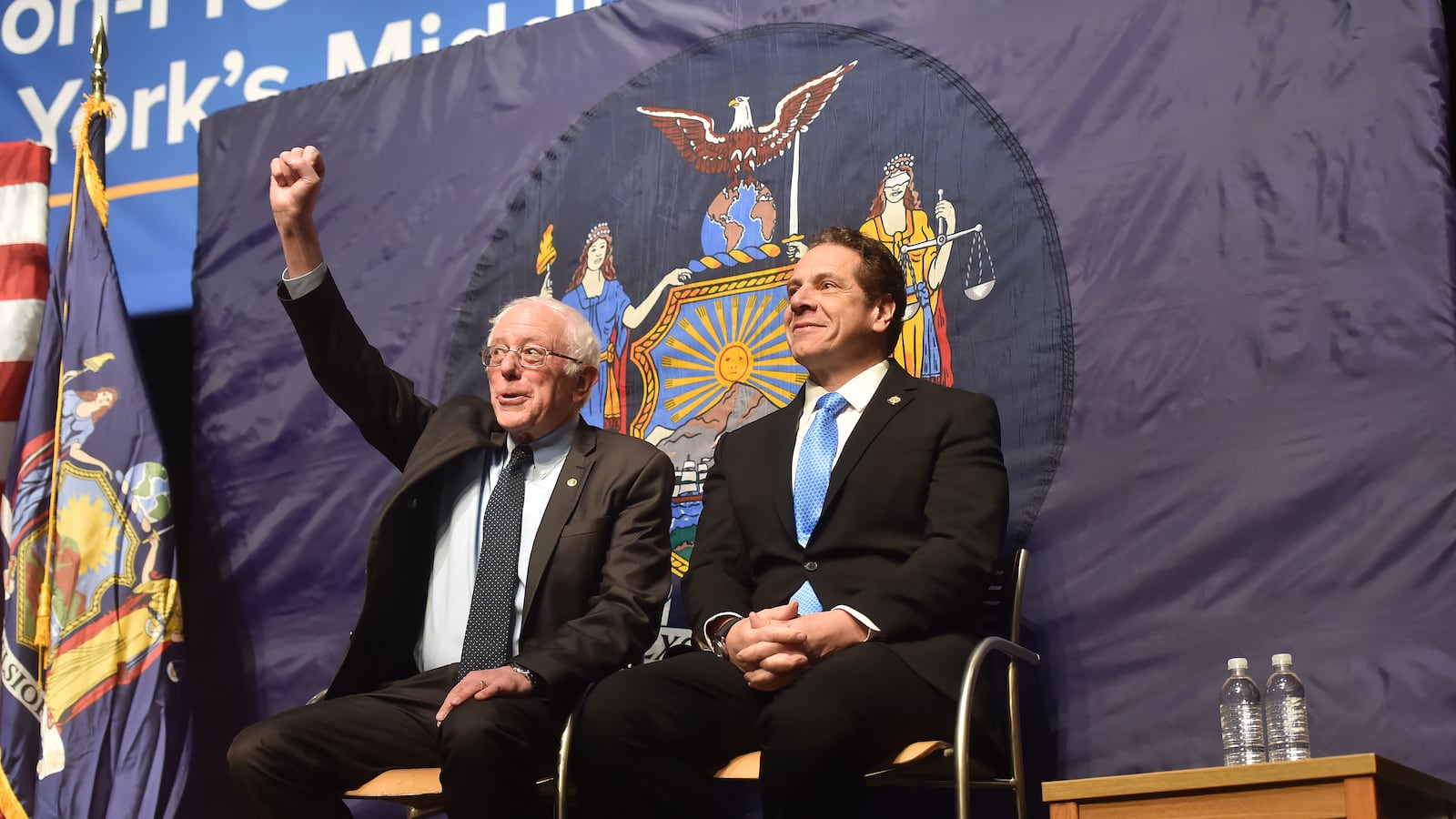Students across New York state will soon attend college with the promise of free tuition, as legislators agreed to a first-in-the-nation plan to waive the cost of two- and four-year public colleges and universities for families earning less than $125,000 per year.
The “Excelsior Scholarship,” a hallmark of the $153 billion budget plan finalized Friday night, applies only to SUNY and CUNY schools. Though the plan carries some restrictions that may limit the number of students who qualify, Cuomo hailed the historic nature of the announcement.
“There is no child who will go to sleep tonight and say I have great dreams, but I don’t believe I’ll be able to get a college education because mommy and daddy can’t afford it,” said Governor Andrew Cuomo. “Every child will have the opportunity that education provides.”
(Technically, lawmakers still have to officially approve the budget; voting is expected soon.)
The final plan is similar to Cuomo’s original proposal, but also includes a boost for the state’s Tuition Assistance Program, which can be used at private college as well as public colleges, something the State Senate pushed for.
Access to the Excelsior Scholarship will be widened over time, with a household income limit of $100,000 this year, $110,000 in 2018 and $125,000 in 2019. In New York City, the governor’s office estimates, 84 percent of families with college-age students would be financially eligible.
But the scholarship also includes many restrictions. It requires students to average 30 credits per year, for instance, and finish their degrees on time.
A low percentage of CUNY students graduate on time in either associate’s or bachelor’s degree programs, so this rule will likely limit the number of New York City students who will qualify. There is some wiggle room provided in the plan that allows students to pause or restart their scholarships because of “hardship” and make up credits if they fall behind one semester, according to materials sent by the governor’s office.
In addition, students will have to maintain a certain grade point average, which was not in Cuomo’s original proposal. It is unclear at this point what that average will be.
The budget deal also creates an Enhanced Tuition Award with a maximum of $3,000 that requires colleges to match the amount and freeze tuition while students receive the award.
The budget tries to offset the cost of textbooks by providing an $8 million investment in resources like electronic books. Other than that provision, there is no mention in Cuomo’s announcement about support for non-tuition expenses like rent or food. The Assembly’s plan would have allowed students to withhold a third of their Pell grant funds for non-tuition expenses.
The Excelsior Scholarship is a last-dollar program, which means students must use their Pell grants and existing state Tuition Assistance funds to cover tuition first, after which Excelsior kicks in to cover the rest. That means low-income students who already have tuition covered by state and federal aid will see little financial benefit — a criticism lobbed at the plan throughout budget season.
Lower-income students typically have lower college completion rates compared to their higher-income peers. A recent survey showed that many students skip meals to pay for books.
The budget deal increases education aid by $1.1 billion, which includes $700 million in foundation aid and will bring total school aid expenditures to $25.8 billion. A one-year extension of mayoral control of city schools was reportedly left out of the final budget deal, despite earlier reports that it would be included.
Editor’s note: This post has been updated with additional information.

